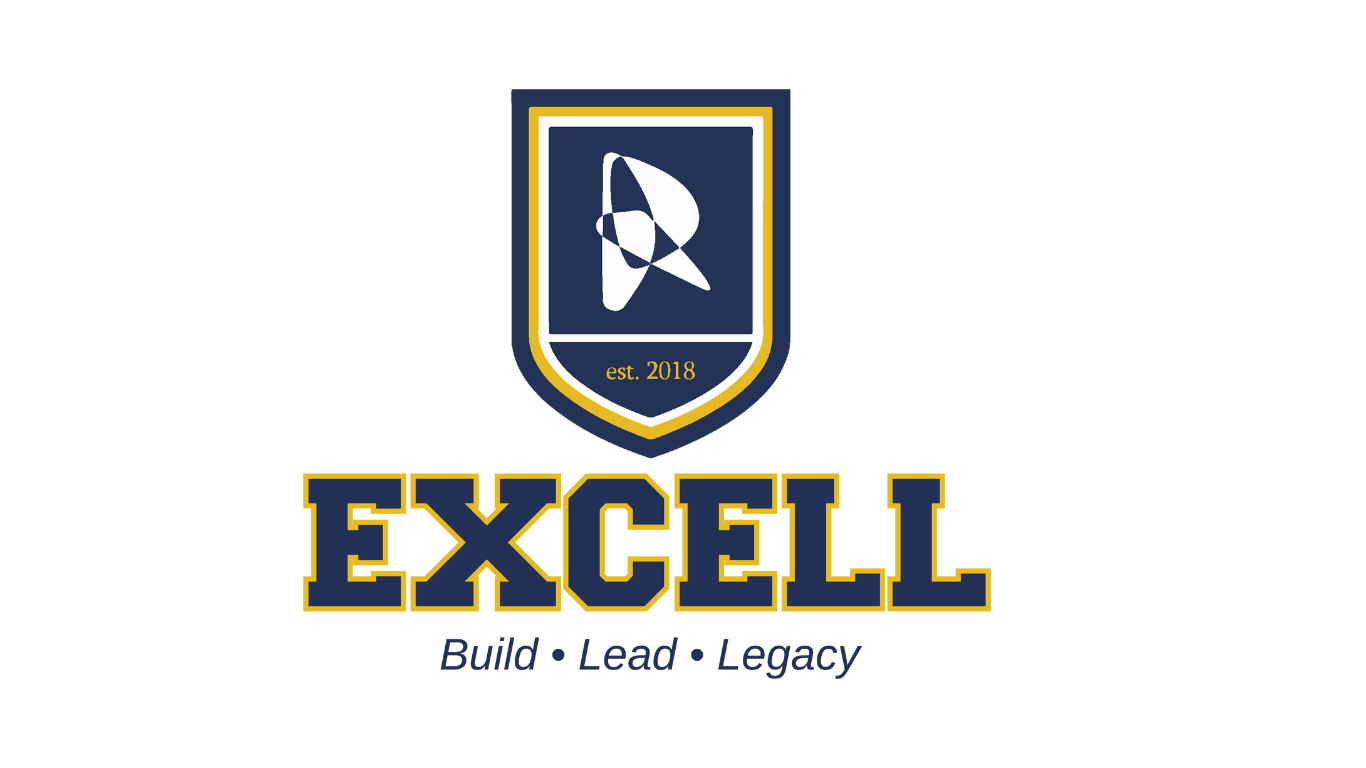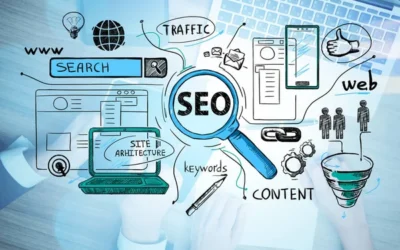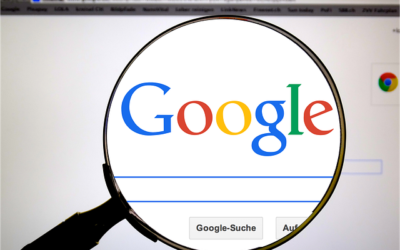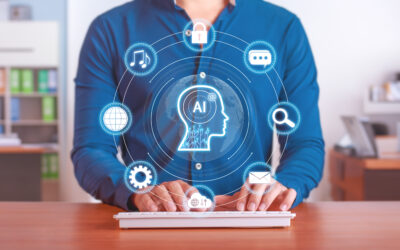How to Use AI in Marketing for Small Businesses and Startups
Table of Contents:
- Why AI Marketing Matters for Small Businesses
- What is AI Marketing?
- Top Benefits of Using AI in Marketing
- How to Use AI in Marketing: 5 Questions Answered
- Real-World Applications of AI Marketing
- Common Challenges and How to Overcome Them
- Step-by-Step Guide to Using AI in Your Marketing
- Future-Proofing Your Business with AI Marketing
- Conclusion: Take the Leap Into AI Marketing
- Call to Action – Partner with Excell
Why AI Marketing Matters for Small Businesses
For most small businesses and startups, time and resources are always in short supply. AI marketing offers something invaluable: the ability to do more with less. With AI, a one-person marketing team can achieve the results of a 10-person team. This technology empowers entrepreneurs to focus on creativity and strategy while automation handles the repetitive and time-consuming tasks.
AI is not just about automation; it’s about optimization and insight. By learning from data, AI can help you understand what your customers want, when they want it, and how they prefer to receive information. It enables you to transition from reactive to proactive marketing, staying ahead of your competitors.
What is AI Marketing?
At its core, AI marketing is the use of artificial intelligence technologies to automate, optimize, and enhance marketing efforts. Instead of relying solely on human guesswork, manual processes, and rigid rules, AI-powered marketing uses data, algorithms, and real-time learning to drive smarter, faster, and more personalized campaigns.
AI marketing doesn’t replace marketers, it empowers them. It streamlines repetitive tasks, interprets customer data at scale, and enables you to make informed decisions based on data, not just intuition.

1. 🧠 Machine Learning (ML)
Machine learning is a branch of AI that allows systems to automatically learn from experience and improve over time without being explicitly programmed.
ML powers recommendation engines, audience segmentation, predictive lead scoring, and A/B testing optimization. It analyzes vast amounts of user behavior, including clicks, time on page, and purchase history, and identifies patterns that help predict future behavior.
An e-commerce platform uses machine learning to recommend products to shoppers based on what similar users have browsed or bought, boosting the average order value without any manual intervention.
2. 💬 Natural Language Processing (NLP)
NLP enables machines to understand, interpret, and respond to human language, both written and spoken.
NLP powers AI chatbots, content generators, customer sentiment analysis, and search optimization tools. It allows you to:
- Understand what customers are asking for in real time
- Generate conversational replies
- Create natural-sounding ad copy and blog content
- Analyze reviews or social media comments for customer sentiment
A law firm chatbot utilizes NLP to answer questions like “How do I file a personal injury claim?” and provide legally accurate, conversational responses 24/7.
3. 👁️ Computer Vision
Computer vision allows machines to “see” and interpret visual data such as images, videos, or live feeds.
This tech is helpful for brands with strong visual components. It can:
- Recognize logos or faces in social media images
- Enable visual search (e.g., taking a photo of a shoe and finding it online)
- Automatically tag or organize media
- Analyze customer expressions or reactions to content
A fashion brand can utilize computer vision to track the frequency of its logo appearing in user-generated Instagram photos, thereby helping to gauge brand reach and influence.
4. 🔮 Predictive Analytics
Predictive analytics uses data modeling, statistics, and AI to forecast future outcomes. It tells you what’s likely to happen based on what has already happened.
This technology helps you:
- Predict customer churn
- Forecast campaign performance
- Identify high-intent leads
- Determine the best time to launch a product or promotion
A subscription box company utilizes predictive analytics to identify customers who are likely to cancel their subscriptions. The system automatically sends them a targeted re-engagement offer, preventing churn and boosting retention.
Imagine a startup launching an online course:
- Machine learning analyzes which website visitors are most likely to convert based on past behavior.
- NLP powers a chatbot that answers questions like “Is there a certificate?” or “How long is the course?”
- Computer vision tracks how users interact with course preview videos to identify key engagement points.
- Predictive analytics forecasts which users are most likely to upgrade to the premium version, triggering a personalized email campaign.
All this happens in the background, while you focus on scaling your business.
Why It Matters to Small Businesses and Startups
Large corporations have long utilized data scientists and sophisticated tools to uncover valuable marketing insights. However, today, AI marketing platforms make these capabilities accessible to even solo entrepreneurs or teams of two.
The goal isn’t to over-automate. The goal is to work smarter, not harder. AI gives small businesses:
- Competitive edge without requiring massive teams
- More time to focus on strategy, branding, and customer relationships
- A scalable way to personalize marketing and serve growing audiences
Top Benefits of Using AI in Marketing

AI enables you to tailor your messaging to individual customers based on real-time behaviors. Personalized recommendations, emails, and website content help improve engagement and conversion rates. This personalization used to take hours of manual segmentation, but AI does it instantly.
From writing ad copy to managing campaigns, AI speeds up your workflow. No more wasting time guessing which content will work. AI shows you what’s likely to succeed based on past performance.
AI tools offer in-depth insights from your data, enabling more informed marketing decisions. You can track metrics like customer lifetime value, churn probability, and campaign ROI with precision.
Imagine running a campaign that automatically adjusts based on user interaction. AI can trigger follow-ups, retarget users, and adapt dynamically to content. That’s marketing on autopilot with strategy still intact.
How to Use AI in Marketing: 5 Questions Answered
Content is king, but it’s also time-consuming. AI tools can generate outlines, write copy, suggest keywords, and even match your tone of voice. With content needs spanning websites, social media, emails, and blogs, AI becomes an essential tool for maintaining consistency and speed.
✍️ Use AI to brainstorm, edit, and optimize, then layer in your unique brand voice.
2. Can AI personalize my customer experiences?
Yes, and it’s incredibly effective. AI analyzes behavioral signals, clicks, page views, and shopping cart activity, and then serves tailored content or product recommendations based on these insights. This leads to increased engagement and conversion.
A personalized experience doesn’t just convert better, it builds long-term customer loyalty.
3. Will AI help me get better results from email campaigns?
AI helps you choose the best time to send, write compelling subject lines, and segment audiences. Over time, it can predict what kinds of messaging each user responds to and optimize its approach accordingly.
A/B testing becomes automatic, and drip campaigns become smarter with every email sent.
4. How does AI help with paid advertising?
AI eliminates the guesswork from ad bidding, targeting, and copywriting. It uses real-time performance data to allocate budget and adjust creatives. AI ensures your ad dollars are allocated where they’re most effective, minimizing wasted spend.
Many small businesses have cut their ad costs in half while doubling performance using AI ad tools.
5. Can I automate customer support with AI?
Absolutely. AI-powered chatbots can answer FAQs, route tickets, and even offer product recommendations. These bots can be trained over time and personalized to reflect your brand voice. They also provide instant 24/7 support, which many small businesses can’t afford to offer manually.
Customers receive faster assistance, and your team is freed up to handle more complex inquiries.
Real-World Applications of AI Marketing
Let’s explore how various industries and business models apply AI, and the real value they get from it:
🛒 E-Commerce Brands
- Product Recommendation Engines: AI analyzes user behavior, including browsing history, clicks, and past purchases, to display the most relevant products to each shopper. Consider the “You Might Also Like” sections on Amazon; AI algorithms power these.
- Dynamic Pricing and Urgency Timers: AI can adjust prices in real-time based on demand or inventory levels. Smart timers (“Only two left in stock!” or “Sale ends in 5 minutes”) are triggered based on user behavior to boost conversions.
- Abandoned Cart Recovery: AI predicts which cart abandoners are most likely to return and sends them personalized reminders via email, push notifications, or SMS with targeted messaging and relevant offers.
A Shopify-based jewelry brand utilized AI-powered email automation to send personalized discount codes to cart abandoners, resulting in a 25% increase in recovery rate without an increase in ad spend.
🧰 Service-Based Businesses
- Appointment Scheduling and Reminders: AI chatbots and voice assistants can handle real-time appointment bookings, integrate with calendars, and send reminders to reduce no-shows.
- Lead Qualification: Instead of having a human review every inquiry, AI chatbots can ask qualifying questions (e.g., budget, timeframe, location) and rank leads before passing them to a sales rep.
- Automated Follow-ups: AI triggers personalized follow-up emails or texts based on how a lead interacts with your website, such as downloading a brochure or visiting a pricing page.
A home renovation contractor implemented an AI scheduling chatbot on their website and saw a 40% reduction in missed calls, along with an 18% increase in booked consultations, in just 30 days.
💻 SaaS Startups

- Onboarding Workflows: AI tracks new user behavior and adapts the onboarding process in real-time, offering tutorials, check-ins, or support prompts when users appear to be stuck or inactive.
- Behavioral Upselling and Cross-Selling: Based on how users engage with features, AI can trigger upgrade prompts at the optimal time, such as nudging a free user to try a premium feature they have just clicked on.
- Churn Prediction: AI models analyze engagement patterns and predict which users are likely to churn, enabling you to intervene with targeted retention offers, surveys, or personalized support.
A project management software startup utilized AI to identify users with declining engagement. A targeted retention campaign with personalized messaging helped reduce churn by 30% within a single quarter.
🏪 Local Brick-and-Mortar Businesses
- AI-Powered Chatbots: Even if your business is closed, AI chatbots can answer FAQs, book appointments, or gather contact info via your website, Google Business profile, or Facebook Messenger.
- Review Monitoring and Sentiment Analysis: AI tools track reviews across platforms and flag negative trends or keywords, enabling quicker response and reputation management.
- Localized Ad Optimization: AI can adjust local ad targeting in real-time based on user location, time of day, and even weather conditions, thereby enhancing relevance and ROI.
A local dental clinic implemented a Facebook Messenger bot to answer questions about services and availability. This resulted in a 2-fold increase in appointment bookings during non-business hours.
🎨 Creative Professionals & Freelancers
- Content Creation at Scale: AI helps generate drafts for blog posts, landing page copy, or social media updates. Creative professionals can save time and focus more on strategy and refinement.
- Portfolio Personalization: AI dynamically shows case studies or client work most relevant to the viewer’s industry or location, boosting conversions.
- Client Onboarding Automation: AI guides new clients through onboarding forms, FAQs, or calendar scheduling without manual input.
A freelance marketing consultant utilized AI to generate proposal templates tailored to various industries, resulting in a 3x increase in client approval rates due to faster turnaround times and personalization.
No matter your business size or sector, AI marketing isn’t just accessible; your competitors are already using it. Whether you’re a solo entrepreneur or a 10-person team, you can leverage AI tools to:
- Save time
- Increase conversions
- Enhance customer experience
- Improve ROI
And here’s the good news: you don’t need a developer, a six-figure budget, or months of training to get started. Many AI tools are plug-and-play, beginner-friendly, and affordable (or even free for small-scale usage).
All you need is a clear goal, such as increasing leads, improving engagement, or reducing manual work, and the willingness to test, learn, and grow.
Common Challenges and How to Overcome Them
Solution: Choose AI tools with intuitive interfaces or work with a marketing partner, such as Excel, to implement them. Many modern tools don’t require coding and offer pre-built templates.
Solution: Use AI to support, not replace, human connection. Think of AI as your assistant, not your replacement. People should still lead final messaging and brand strategy.
Solution: Start with free trials or freemium tools that focus on high-impact areas, such as email, social media, or content. Even using AI for just one process can unlock new revenue.
Step-by-Step Guide to Using AI in Your Marketing
Start by listing your biggest time-wasters or marketing inefficiencies. Is it content creation? Lead follow-ups? Ad spend?
Clarify your KPIs. Whether it’s higher engagement, more conversions, or better lead scoring, understanding your target audience helps you choose the right AI approach.
Start with a simple use case. For example:
- Use AI to write social media captions.
- Automate welcome emails with behavior-based triggers.
- Add a chatbot for website support.
Monitor changes in key metrics, including engagement, conversions, time saved, and cost reduction. AI thrives on iteration; let data guide your refinements.
Future-Proofing Your Business with AI Marketing
AI is not a trend; it’s the foundation of the next generation of digital marketing. As consumer expectations evolve and competition intensifies, being proactive about AI adoption keeps your business agile and ahead of the curve.
Upcoming AI Innovations for Small Businesses
- AI-powered voice Assistants will allow voice searches to trigger custom marketing flows.
- Real-time video personalization will create tailored video content based on viewer behavior.
- Emotion AI may soon analyze user sentiment to dynamically adjust tone and messaging.
- Generative Design will allow AI to create graphics, layouts, and web pages without human input.
Conclusion: Take the Leap Into AI Marketing
Mastering the use of AI in marketing is no longer a “nice-to-have”; it’s a necessity in today’s competitive environment. Whether you’re a startup with two employees or a local business juggling multiple roles, AI allows you to streamline operations, improve targeting, and create experiences your customers want.
Remember, AI isn’t here to replace you. It’s here to amplify your impact to make you smarter, faster, and more efficient at doing what you do best: growing your business.
Call to Action – Partner with Excell
Ready to supercharge your marketing using AI but not sure where to start?
We’re Excell.

💼 Let’s build your growth engine with the power of AI.
Contact us:







